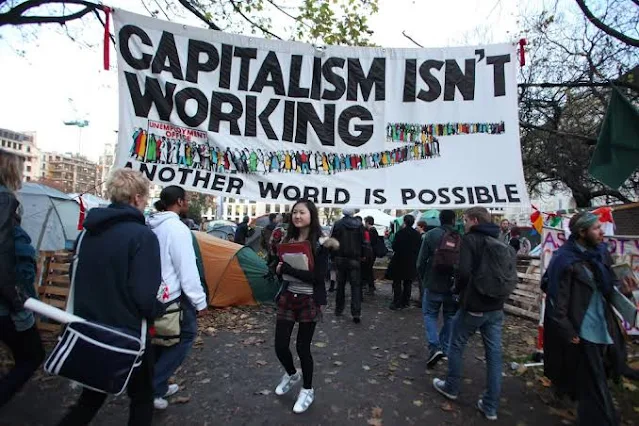In a sick capitalist society, people lose the ability to truly believe in fellow human beings, feel for others
Mental illness, heart attacks, high blood pressure, and other physical ailments, along with social and emotional distress and economic hardships, are inherent and integral aspects of capitalism and its systems. Capitalism thrives on a sick society because it is easier to manage and control. However, the sickness of society under capitalism is not limited to the physical and mental health of individuals. It extends beyond personal afflictions, permeating the broader structure of society itself.
The normalisation and mainstreaming of misinformation, deceptive practices, and irrationality are becoming entrenched features of capitalist society. In this system, there is a proliferation of confidently incompetent individuals who present their deceptive values as truth, dismissing factual evidence entirely. This is not a "post-truth" society but rather a society devoid of accountability, where deceptive figures project themselves as saviours. Such individuals conceal their failures and incompetence within an environment and culture of widespread deception. This environment produces individuals, cultures, families, leaders, states, governments, and institutions whose actions are fundamentally misguided—what Barbara Tuchman aptly describes in her book The March of Folly. Capitalism, in many ways, facilitates this folly.
Gradual reforms within so-called parliamentary democracies, driven by capitalist market forces, have failed to alter the capitalist and feudal power structures embedded in society. As a result, a small elite continues to control the means of production, distribution, demand, supply, and consumption. This system paradoxically creates hunger despite vast quantities of food grains being stored in warehouses. It produces an abundance of homes, yet the very workers who construct them remain homeless. Those who clean our hospitals, schools, streets, and parks often find themselves falling ill. Beyond hunger, homelessness, poverty, and unemployment, capitalism produces social alienation, entrenches inequalities of all kinds, and perpetuates exploitative conditions. These factors are central to the perpetuation and growth of a sick society under capitalism.
The state and governments have failed to serve the people because their priorities are aligned with advancing capitalist interests at the expense of lives and livelihoods. Under this system, the tragedies of the people are turned into opportunities for capitalism to generate higher profits while subjugating the poor and vulnerable. In this way, capitalism is inherently opposed to prosperity and the creation of a harmonious society where people can live in peace and happiness. It is fundamentally a system of sickness that cannot be reformed. The idea of a "human face" for capitalism is an impossibility, as the system itself is antithetical to human values, reasons and well-beings of people and nature.
Capitalism, along with its apparatuses in the form of states and governments, forms alliances with patriarchal, reactionary, authoritarian, and religious forces to maintain its hegemony over people and the planet. It achieves this by subjugating individuals under the guise of promoting an exaggerated sense of culture, tradition, and family happiness. In the capitalist framework, human beings and nature are reduced to mere resources to be exploited for the purpose of amassing limitless profits. The tragedies of people are not incidental but rather the inevitable outcomes of a sick society engineered by capitalism—a society where individuals are reduced to economic beings to generate profit. This system sustains a capitalist hierarchy that masks widespread alienation to safeguard the entrenched interests of the ruling capitalist classes.
In a sick capitalist society, people lose the ability to truly believe in fellow human beings, feel for others, and love one another, or to share their happiness and sorrows with family and friends. It is a society where individuals rationalise their actions in pursuit of pleasure, utility, and satisfaction, yet fail to achieve these goals. This failure stems from the reality that pleasure, utility, and satisfaction are rooted in social solidarity and cannot be attained through isolated, self-centred pursuits within a market-driven society. Individual happiness cannot exist independently of collective happiness. Therefore, the pursuit of collective well-being is the only path to overcoming capitalism and its pathologically sick and alienated society sans human values.


Comments